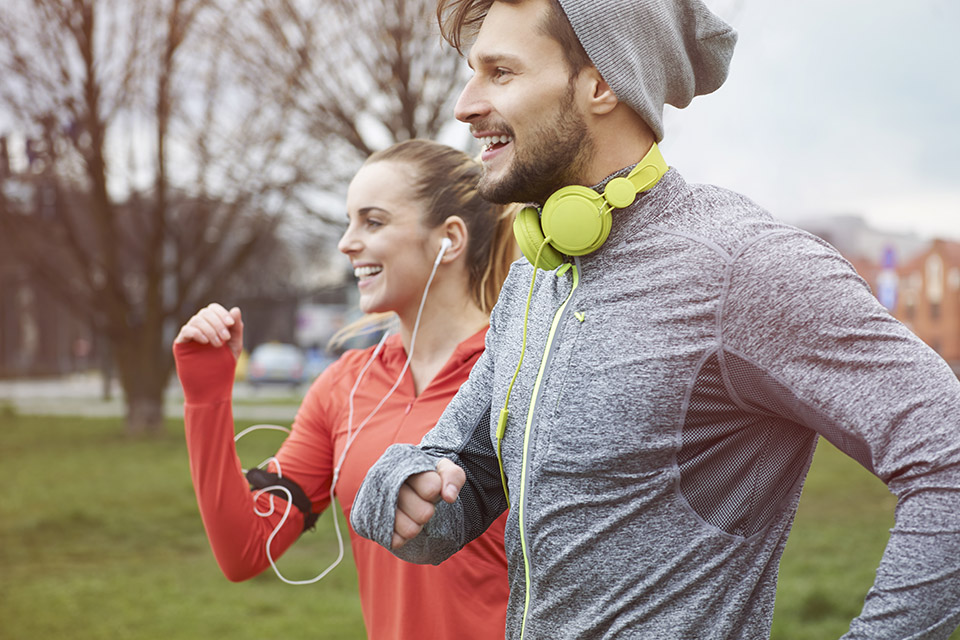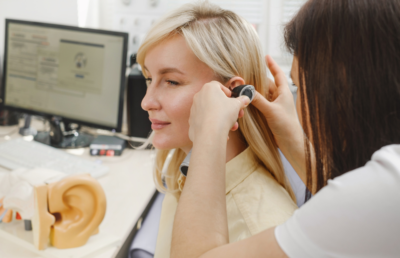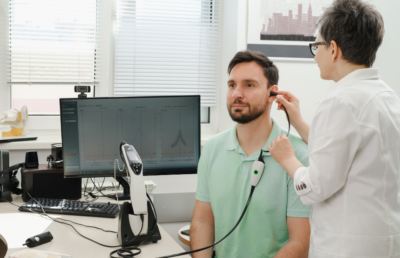Getting through a workout session is always easier with your favorite playlist. However, as loud noise can damage your hearing, it’s important to reconsider the volume of your music to protect your ears. After all, you probably decided to exercise to make your body healthier in the first place. So if you damage your hearing in the meantime, you defeat the purpose. Read on to find out more and some useful tips on how to protect your hearing.
Noise and hearing
Our ears are incredibly complex and sensitive. There are thousands of cells with millions of tiny hair-like structures in our inner ear that facilitate hearing. The bad news is that these cells and structures can be damaged by loud sound. It’s important to note that hearing loss is permanent. Once damage occurs, it’s irreversible, so protecting your hearing is crucial. In the end, it’s all about the decibel level and the length of exposure to loud noise.
Understanding decibels (dB)
Sounds below 70 decibels are generally considered safe. Any sound at or above 85 dB is more likely to damage your hearing over time. To give you an idea, a normal conversation is about 60 dB, city traffic as heard from inside the car is about 85 dB, while a rock concert is about 110 dB. Headphones and earbuds can produce sounds up to 110 decibels, equivalent to the blare of a live rock concert. At that level, hearing loss can occur after only a few minutes. This is why you have to be careful with headphones and ear buds while exercising.
How to protect your hearing while exercising?
Turn the music off
While working out and listening to music seem to go hand in hand, sometimes there may be advantages to turning off the workout playlist, especially if you’re exercising outside. You can enjoy the sounds of nature while also being aware of your surroundings, which makes your workout much safer. Try to make your outdoor workout sessions music-free.
Turn the volume down
If you do wear headphones during your workout, be sure to turn the volume down. Keeping the 60–60 rule in mind can be helpful. That is, limiting listening to 60 minutes a day at just 60% of the device’s maximum volume. Make sure not to turn the volume all the way up because that puts your hearing at risk.
Understand the risks of earbuds
Earbuds typically sit deeper in the ear canal than traditional headphones and may put hearing follicles at greater risk of damage from loud sounds. As an alternative, consider using larger noise-canceling headphones that rest over the ear instead of directly in it. This increases the distance between your eardrums and the audio and may help to reduce the risk of damage. If the earbuds are not comfortable or do not block out enough gym noise, consider getting custom molded sleeves to use with your earbuds. They will be more comfortable, stay in your ears easier, and create sound isolation so the volume of your music can be lowered.
Wear earplugs
If you participate in group exercise classes where the music is usually blasting, wear earplugs. They’re small enough to fit in your ear and effective enough to help soften the loudest sounds while still allowing you to hear. You can always keep a pair in your car or gym bag. Letting the instructor know that the level is hurting your hearing, may also help them turn down the volume.
Keep your distance
The closer you are to the sound source, the bigger the burden on your ears, so try to pick a spot as far away from the speakers as possible.
Take a break
Keeping your noise exposure to 15 minutes or less amid 100-plus decibel levels and no more than a minute amid 110-plus decibel levels might not sound fun, but frequent or prolonged noise exposure increases the chance of lifelong hearing damage. Make sure you properly protect your ears and take breaks if you find a class too loud.
Working out with hearing aids
If you already have hearing aids, you may wonder whether you should wear them during exercising. The answer is yes! Wearing your hearing device while exercising can increase your safety and improve communication with those around you. However, there are a few important tips to keep in mind to ensure the longevity of your hearing aids. Read our post on Useful Tips For Exercising With Your Hearing Aids to find out more.
If you think you’re experiencing hearing loss, getting treatment as soon as possible is important and it can also hugely improve your quality of life. Booking an appointment for a hearing test is the first step on your journey towards healthy hearing. Book your appointment today!





